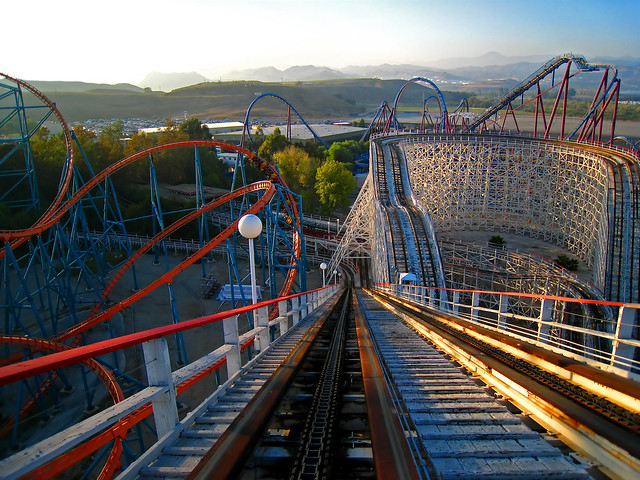Mindfulness for the Emotional Rollercoaster of Early Recovery
“The good news is you get your emotions back – the bad news is you get your emotions back”
Unknown
Your awakened motions can be a blessing and a curse in early recovery. In a matter of seconds, you can swing from a joy that makes you want to hug strangers to feeling so low even the slightest hint of criticism can have you sobbing like a baby.
The term ‘emotional rollercoaster’ is an accurate description of the mood swings you can experience at this stage. There are a number of reasons for why it happens.
Substance abuse can mean you have been numbing your emotions in years, so you experience them more intensely as they start to awaken.
The emotional rollercoaster can also be due to the stresses of rebuilding your new life. Most humans struggle when it comes to making major changes, and giving up an addiction is particularly challenging.
Another contributing factor to these mood swings can be post-acute withdrawal symptoms. The worst of your withdrawals should pass within a couple of weeks, but there can be some symptoms that linger a bit longer such as tiredness and difficulty concentrating – both of these can leave you feeling a bit moody.
Kulai
How Mindfulness Helps with the Emotional Rollercoaster
On Tuesday, a client wanted to know when he could expect his bad moods to go away. I tried to break the news gently, but I had to tell him that I doubted this would ever happen. Sure, the emotional rollercoaster should settle down over time, but fluctuating mood is a part of life.
Life is an emotional experience – it is as reasonable to expect bad moods to disappear as it is rainy days. In fact, a life without the different flavors provided by a range of emotions would be incredibly dull.
Mindfulness helped me understand that negative emotions are not my enemy. I discovered that it wasn’t so much the low moods that caused my suffering, but my reaction to these low moods.
The thing that made low mood unbearable for me was that it triggered so much negative thinking. I would beat myself up with thoughts like ‘I shouldn’t be feeling this way’ or ‘I knew it was all going to go to shit again’. It was these thoughts that caused my suffering and not the low mood.
It has always been the labels I put on my emotions that made them easy or hard to deal with. I started to just experience my emotions without the labels, and I found that they were incredibly easy to deal with. It was like I’d spent years running away from a monster who turned out to be a little puppy dog.
The emotional rollercoaster of early recovery doesn’t have to be a threat to your sobriety. If you can just experience all your emotions without resistance and judgment, you will notice how they are all temporary visitors – the happiness doesn’t last forever but neither does the sadness.
I usually find it easier to just focus on the physical sensations associated with each mood – for example, if I’m feeling low, there will usually be a sensation of heaviness in my body. I just try to observe this heaviness until it passes away. Every time I notice how my mood is triggering negative thinking, I just acknowledge this and bring my attention back to the sensations in my body.
Low mood used to cripple me, but this was because of the negative thinking it used to trigger. I would get caught up in a downward spiral where the sadness would generate negative thoughts which would then increase the feeling of sadness. These days, I can function more or less as normal even when I’m feeling sad.
“…emotions persist because we have emotional reactions to our own emotions that actually keep them going.”
Mark Williams – The Mindful Way Through Depression
It isn’t only low mood that makes the emotional rollercoaster dangerous. If you become too high on life, it could encourage you to behave a bit recklessly. Mindfulness is useful here as well because it helps to keep you grounded.
